
Kim Ki-duk was a South Korean film director and screenwriter, noted for his idiosyncratic art-house cinematic works. His films have received many distinctions in the festival circuit, rendering him one of the most important contemporary Asian film directors.
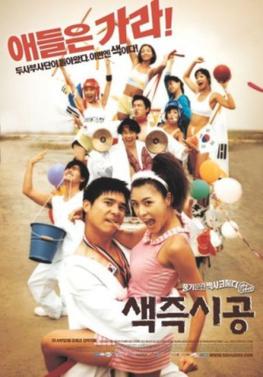
Sex Is Zero is a 2002 South Korean film written and directed by Yoon Je-kyoon, starring Im Chang-jung and Ha Ji-won. In the style of American gross-out comedies like American Pie, it follows the exploits of a group of college students, which eventually takes a serious turn. Sex Is Zero sold 4,089,900 tickets in South Korea, making it the fifth most popular film of 2002.
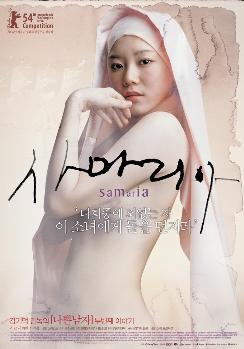
Samaritan Girl is a 2004 South Korean film written and directed by Kim Ki-duk.
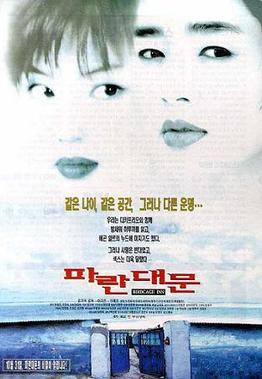
Birdcage Inn is South Korean director Kim Ki-duk's third film, released in 1998. The drama stars Lee Ji-eun, Lee Hae-eun and Ahn Jae-mo. It was released domestically in October 1998, and screened at the Berlin International Film Festival in February 1999.
Seoul Institute of the Arts is a prominent educational institution specializing in the Arts located in Ansan, Gyeonggi Province, South Korea. The school has nurtured many graduates who are actively working in art related fields within Korea as well as internationally. The Namsan campus in the heart of Seoul is used for presentation of arts productions and convergence with industry. The Ansan Campus opened in 2001 and is used for educational training, which aims to tear down barriers between disciplines, genres, and majors. The Institute continues to be a forerunner in globalization of Korean arts and creation of new forms of arts.

H is a 2002 South Korean horror-thriller film. It was written and directed by Lee Jong-hyeok, and stars Yum Jung-ah, Ji Jin-hee, and Cho Seung-woo.

Woman on the Beach is the seventh feature film by South Korean director Hong Sang-soo, and was released in 2006.

Family Ties is the second film by South Korean director Kim Tae-yong. Mismarketed as a slapstick comedy through its promotional posters, the film is actually a generation-to-generation view of two families through love and life.

Lovers is a South Korean television series starring Kim Jung-eun and Lee Seo-jin who play a plastic surgeon and a gangster who enter into an unlikely romance. The series is based on the Lee Man-hee stage play Turn Around and Leave, the same work that inspired the 1998 blockbuster film A Promise starring Jeon Do-yeon and Park Shin-yang. It aired on SBS from November 8, 2006 to January 11, 2007 on Wednesdays and Thursdays at 21:55 for 20 episodes.

Taejo Wang Geon is a 2000 Korean historical period drama. Directed by Kim Jong-sun and starring Choi Soo-jong in the title role of King Taejo. The drama aired from April 1, 2000, to February 24, 2002, in 200 episodes. The scene dealing with the end of Gungye gained a lot of popularity, recording the highest viewership rating of 60.4% in the metropolitan area.

Breath (Korean: 숨) is the fourteenth feature film by South Korean director Kim Ki-duk.
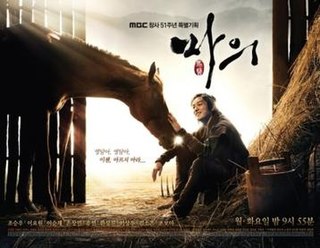
The King's Doctor is a 2012 South Korean television series depicting Baek Gwang-hyeon (1625–1697), Joseon Dynasty veterinarian, starring Cho Seung-woo and Lee Yo-won. It aired on MBC from October 1, 2012 to March 25, 2013 on Mondays and Tuesdays at 21:55 for 50 episodes. The historical/period epic drama commemorated MBC's 51st anniversary.

Living in Style is a 2011 South Korean weekend family drama series starring Ki Tae-young and Yoon Se-in. It aired on SBS TV from September 17, 2011 to March 11, 2012, on Saturdays and Sundays at 21:50 for 51 episodes.

Can We Fall in Love, Again? is a 2014 South Korean television series starring Eugene, Uhm Tae-woong, Kim Yoo-mi, Choi Jung-yoon and Kim Sung-soo. It aired on JTBC from January 6 to March 11, 2014 for 20 episodes.
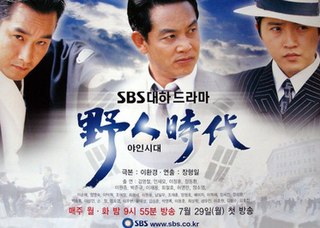
Rustic Period (Korean: 야인시대) is a South Korean television series aired from July 29, 2002, to September 30, 2003, on SBS. It focused on the life of historical figure Kim Du-han, a former mob leader turned politician, and the tumultuous modern history of Korea from the Japanese occupation to Park Chung-hee regime.

The Prison is a 2017 South Korean prison action film directed by Na Hyun and starring Han Suk-kyu and Kim Rae-won. It was released on March 23, 2017.

The Lady in Dignity is a South Korean television series starring Kim Hee-sun, Kim Sun-ah, Jung Sang-hoon with Lee Tae-im and Lee Ki-woo. The series aired on cable network JTBC on Fridays and Saturdays at 23:00 (KST) time slot from June 16 to August 19, 2017. It became one of the highest-rated Korean dramas in cable television history.
West Palace is a 1995 South Korean television series starring Lee Young-ae, Kim Kyu-chul and Lee Bo-hee. It aired on KBS2 from July 7 to December 26, 1995, on Mondays and Tuesdays at 21:40 for 52 episodes.
Daemyeong is a 1981 South Korean television series starring Kim Dong-hoon, Kim Heung-ki, Seo Young-jin, Won Mi-kyung, Kim Sung-won and Baek Il-sub. It aired on KBS1 from January 5, 1981 until December 28, 1981 every Mondays for 52 episodes.
















